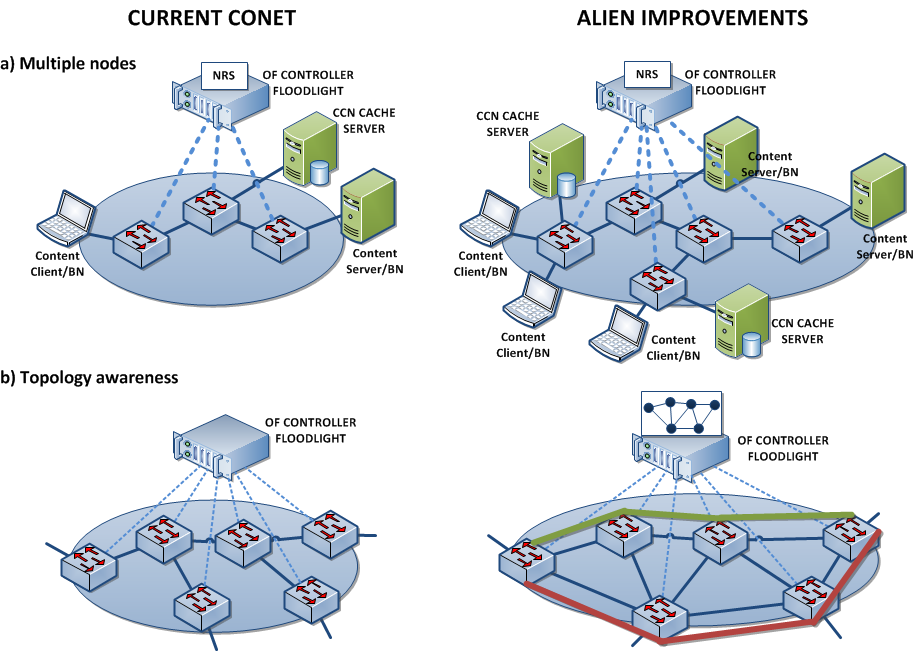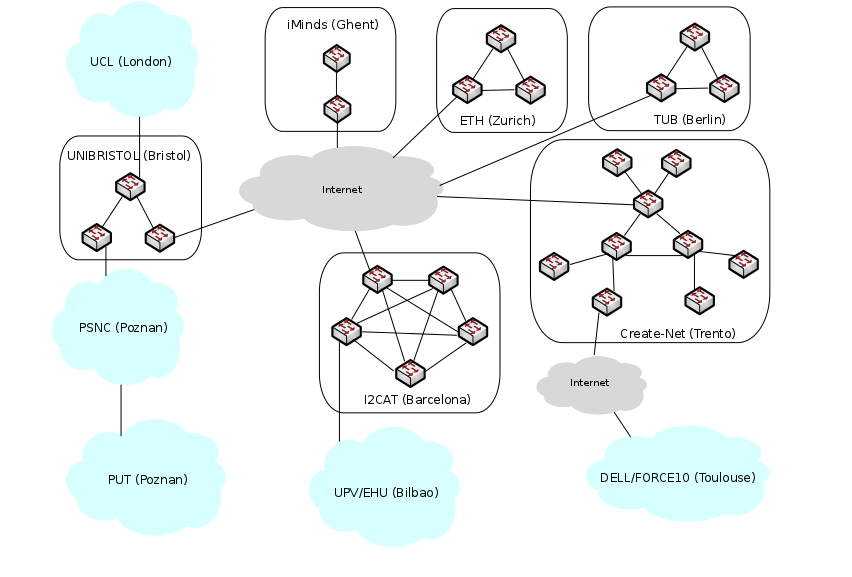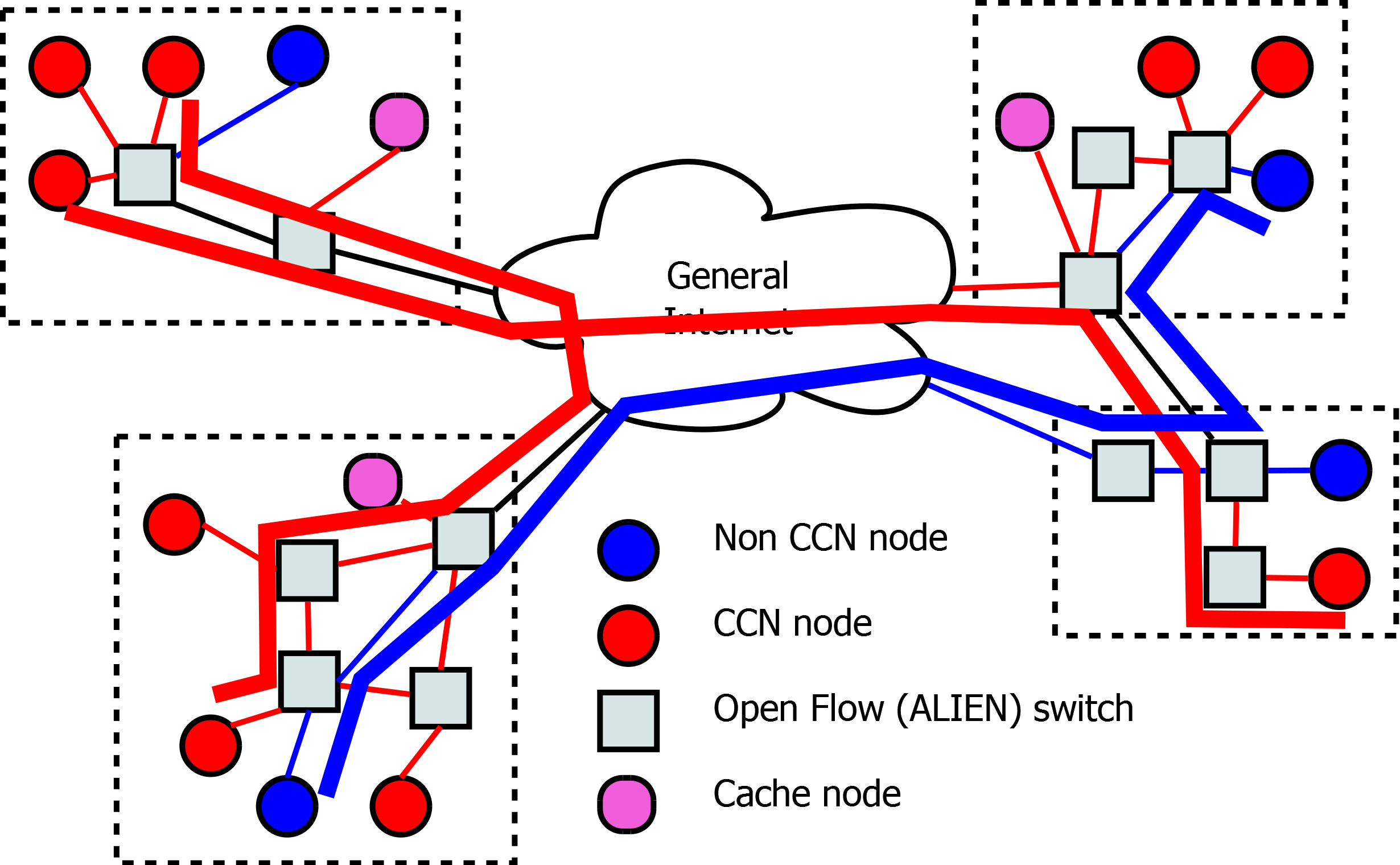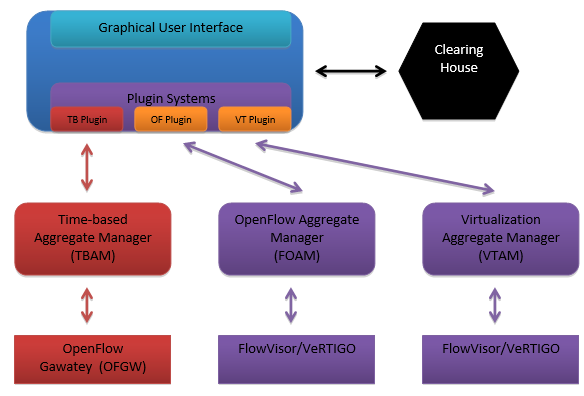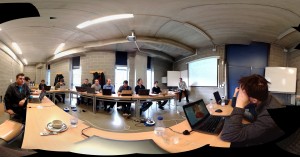 The 3rd ALIEN project meeting took place on 3-5 February at the University of the Basque Country in Bilbao, Spain.
The 3rd ALIEN project meeting took place on 3-5 February at the University of the Basque Country in Bilbao, Spain.
The meeting was primarily devoted to WP1, WP6 and WP5, with some additional discussion on FIA Athens 2014 ALIEN presence and the ALIEN Workshop at EWSDN 2014. The project amendment has been discussed and agreed among all partners. Last day was dedicated to the software development meeting, with a focus on WP3 and AMsoil.

